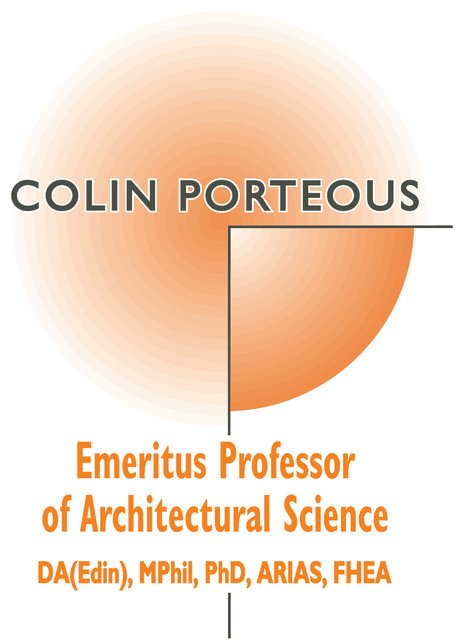Kerr MacGregor Award
Kerr MacGregor Award for Solar Innovation
The Kerr MacGregor Award started in 2013 in memory of Kerr and was originally set up under the SSEG banner with the support of the Scottish Renewables and the Scottish Institute for Solar Energy Research (SISER). Evidence of ‘novelty’ and ‘potential impact’ has always been key. The Award is now being relaunched with the support of the Scottish Ecological Design Association Solar Group (SEDA Solar) with a wider design remit. It is open to all practitioners and academics of related disciplines in the built environment, including architects, engineers and scientists.
CRITERIA
‘Innovation’ remains key to the Award, moving beyond prototypes and demonstrators, to an applied stage with evidence of actual or modelled performance that shows a real advance in practical knowledge. New ideas, methods, or devices; active and passive solar designs, innovative combinations, and significantly new measured performance data for applications from previous demonstrators and prototypes could constitute ‘innovation’.
The specific criteria for the Award are that the innovation:
☀ must be authored by a team or person currently residing in Scotland
☀ must have a substantial solar component
☀must demonstrate compatibility with its environmental surroundings and/ or environmental impact of construction or product, whether global, urban or rural
☀ cannot be previously publicised, unless there is clear evidence of added value and new knowledge
☀ has been developed and/or implemented within the last five years
☀ may be demonstrated anywhere in the world
☀ must demonstrate practical application with evidence of energy performance, either through modelling or performance in use measurement using recognised techniques
☀must evidentially account for upfront embodied carbon balanced against carbon emission savings over the life of the innovation
About Kerr MacGregor
Kerr MacGregor was one of the UK’s leading authorities on solar energy and solar inventor. He was also the Scottish Government’s energy spokesman and advisor on energy policy.
Driven by practical experimentation and pragmatically economic techniques for capturing free renewable energy, his many inventions and innovations included:
☀ Solartwin: a solar water-heating panel which is freezable, unlike most others. By putting water inside his panel, Kerr dispensed with antifreeze, a viscous and unstable chemical gloop. This meant water could circulate more easily, so that a miniature, highly efficient pump could be used. The pump can be powered by just five watts via a small solar electric panel. More than 5,000 Solartwin installations are in place across the world.
☀ Solar Clip Fins: widely used in DIY construction of solar collectors across the world
☀ Smart Solar Shades: for sunspaces in homes
☀ Underground Heat Storage: for greenhouses so seedlings can get 2 weeks head start in growth in Spring
☀ Low cost design large solar collectors – used in swimming pools in UK and Spain
☀ Transpired Plate and Fabric solar collectors – for applications including wood drying
☀ Solar Thermal Slates – now used in hundreds of Scottish “Hard to Heat” homes to dehumidify and heat air at low cost.
He was a natural educator, and for many years ran “Solar One” - a solar display vehicle used to introduce the potential of solar technology to schools, festivals and exhibitions. He also ran DIY solar water heating courses and solar energy.
kerr MacGregor award 2023
submission requirements
Submissions opened on 29th September 2023.
All submissions must fulfill the above criteria, or else they will be disregarded.
All applicants must submit the electronic equivalent of one A2 size poster as a PDF with maximum file size of 5MB, with minimum font size of 12pts. The drawings, images and data must provide enough information and detail to enable a comprehensive understanding of the project’s aims and achieved goals, and to fulfill the relevant Award criteria.
The submission should be sent to solar@seda.uk.net no later than 12 noon on 8th December 2023.
AWARD PRIZES
Winner: £1,000
Commendations
The Winner and Commendation projects will also be published in the SEDA Magazine.
Award Sponsors
TIMETABLE AND PROCESS
The annual Award will be soft launched on 15th June 2023, and open for submission on 29th September 2023. The deadline for submission is 12 n00n 27th November 2023. Online presentation by applicants to the judges may be called for at the judges’ discretion, prior to or after shortlisting, and will take place online late November 2023. Shortlisted applicants will be notified in December and their posters will be on display at the SEDA Awards Ceremony event on 25th January 2024 where the winner and other prizes will be announced.
JUDGES
SEDA Solar is responsible for selection of judges.
There will be 5 Judges with a mixture of architect, engineer, solar specialist and lay person.
Fionn Stevenson (Chair) - Professor of Sustainable Design
David Somervell - Former Sustainability Advisor of University of Edinburgh
Dr Pui Wah Wong - Environmental Engineer, Researcher in Solar and Renewables
Dr Joseph Gibbons - Senior Technical Advisor for Natural Power Consultants
Peter Randall - Renewable energy consultant and former solar business owner
PREVIOUS WINNERS
2021 Winners
Ellie Tanaka, Matthew Sutton, Neil Robertson
Title: A New Type of Solid-State Dye-Sensitised Solar Cell Based on Polyiodides
2018 Winner
Joseph Gibbons
Title: The Thermophototonic approach to Radiative Solar Cell Cooling
2018 Runner-up
Sondas Abdullah, J Almahmoud et al
Title: Development of a planar A-D-A small molecule donors for organic photovoltaics
2017 Winner
Dr Faisal Ghani
Title: Optimisation of Sunamp’s phase change material thermal storage batteries by training of dynamic neural networks
2016 Winner
Maxwell Halik
Title: Determining optimum energy storage characteristics for a unique demand pro le with distributed PV














